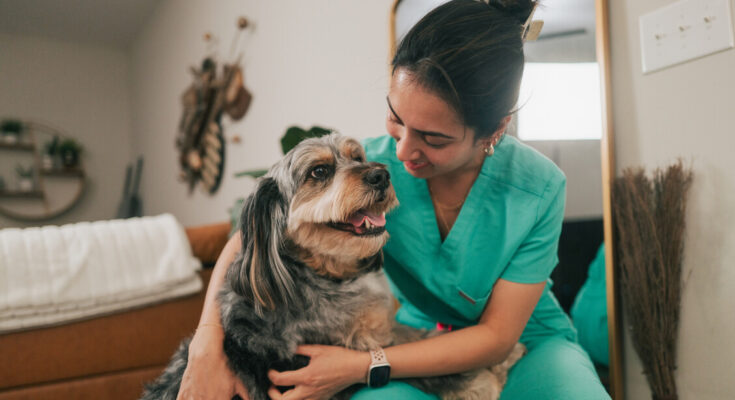He or she is considered the number one influencer in decisions regarding the pet’s care and must be able to combine technical knowledge with an open dialogue approach that makes the owner feel like they are playing an active role in the pet’s care process. This emerges from a new Ipsos survey for Ca’ Zampa that captures the transformation taking place in the relationship between Italians and pets, which are increasingly becoming an integral part of family life. Italy claims to be a very “pet friendly” country. 66% of those interviewed received at least one pet in their home – and in 31% of cases there was even more than one pet. A strong component of solidarity is also striking: about half of the pets come from adoption or rescue, which is a sign of increasing sensitivity to animal welfare. Among the evidence:
One Health: pet health and owner health are increasingly connected. Prevention at the center
According to research, living with animals improves the owner’s quality of life:
• for 43% pets are a daily source of joy and mental well-being;
• for 71% it stimulates them to do more physical activity;
• for 61%, this sport is even the main form of exercise
This new awareness means greater attention to prevention: 7 in 10 owners take their pets to the vet 2 to 4 times a year and 95% consider prevention to be very important. Not only that: 9 out of 10 Italians say they would rather invest in prevention than face a disease. Among the preventative examinations most desired by owners, personalized examinations based on the pet’s age (45%), annual parasite prevention (40%) and weight control programs (19%). Nutrition is at the heart of a pet’s well-being: for 92%, diet is very important to prevent disease, 64% of owners consider themselves informed about correct nutrition and 31% want information about nutrition tailored to their needs.
Trusted doctor: 98% trust their veterinarian
Veterinarians assert themselves as central figures in decisions regarding the welfare of their pets: 98% of owners say they have complete trust in them. He is no longer just a doctor who is contacted when his animal is sick: for the majority of respondents interviewed, he is a consultant who provides guidance on nutritional choices (71%), as well as treatment, prevention and lifestyle. Nearly 8 out of 10 (78%), the relationship with the veterinarian should be cordial and friendly. What makes a truly great veterinarian? Empathy is the main requirement (50%), followed by genuine human relations (35%), flexibility and availability (32%), unhurried dedication of time (35%), high technical skills (30%), the ability to communicate clearly and transparently (30%) and the ability to use the latest technological tools (10%). These elements represent a clear indication for a new generation of professionals who are called upon to possess superior clinical skills combined with an effective ability to inform and guide owners.
More organized structure, advanced services and technology: new demands from owners
The offer of pet care services is also expected to continue to grow: one in three owners prefer to rely on a modern and well-organized structure, rather than relying on just one professional. Among the most valuable elements appear:
• flexible working hours and 24 hour availability (56%) • qualified and multidisciplinary team (more than 40%)
• efficiency and quality of service (25%) • state-of-the-art diagnostic instruments (25%)
• greater attention to customers (approx. 20%). Interest is also increasing in the most innovative services desired: telemedicine (25%), applications for communicating with veterinarians (25%) and the use of advanced technologies for diagnosis and treatment (more than 20%) and nutritional consultation services (16%). Among the services that can be considered useful contained within the structure are services related to the purchase of medicines (61%), parapharmacy (33%) and veterinary diets (25%). Fees are considered fair, but VAT reductions and allowances are requested. For 6 in 10 owners, vet costs have a significant impact on the family budget, 75% of those interviewed considered vet costs “fair or acceptable”. However, one in two Italians expect a reduction in VAT – currently at 22% – and greater tax cuts, with the aim of making healthcare more accessible.
The Ipsos study for Ca’ Zampa is carried out as part of an educational project that is a collaboration between the Gregorio VII Polyclinic of the Ca’ Zampa group and the University of Rome Tor Vergata that will make the Polyclinic the largest veterinary teaching hospital in Italy: from the next academic year, in fact, the Roma Tor Vergata Veterinary Degree program will be based within and in a space adjacent to the Polyclinic.
Reproduction protected by law © Copyright ANSA



